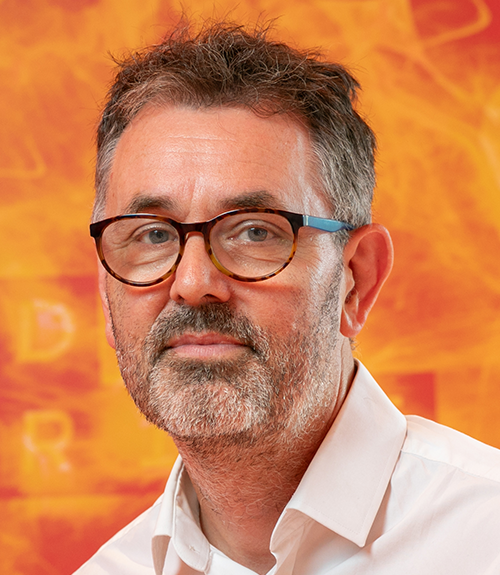Great Ormond Street Hospital (GOSH) and AI startup TORTUS are collaborating on a research partnership, which has shown promise for the use of ambient AI to improve consultation experience for clinicians and patients. Professor Andrew Taylor, Director of Innovation, Great Ormond Street Hospital, tells us more.

Putting research and innovation at the heart of care for children
GOSH has a legacy of leading cutting-edge research with our partners. Since 1852 we’ve had the privilege of working with families to discover better, kinder treatments for the rarest and most complex illnesses to help children reach their best possible future.
We know that patients seen at research active hospitals have better outcomes. As an Intelligent Research Hospital, we put research and innovation at the heart of our care for children, harnessing the power of our data to help save and transform lives. We prioritise patient safety and we research to improve, so that our current and future families get the best care possible.
A hub for paediatric innovation
In 2018, we established the GOSH Data Research, Innovation and Virtual Environments (DRIVE) unit, with the aim to become a go-to centre for paediatric innovation. Our vision is to change the way that we use data and technology to improve outcomes and experience for children and young people and their families, and better support healthcare staff.
We have built an exceptional team with a broad range of expertise, but we know that when we work in collaboration, we can achieve even more. Partnerships are core to our mission and we are proud to work in partnership with forward-thinking industry partners, to test and develop new innovations in a paediatric NHS setting.
AI holds enormous potential in healthcare
Artificial Intelligence (AI) holds enormous potential for the NHS, if used in the right way. Clinicians spend too much time carrying out administrative tasks, such as typing patient notes and letters. By leveraging AI tools, we could reduce this administrative burden and burnout for clinicians, giving them more time to focus on what they do best – provide patient facing care.
A recent study by The Health Foundation found that overall, the public and NHS staff are in support of the use of AI in patient care, and an even greater proportion said they support the use of AI for administrative purposes. One area of concern for the public was AI’s potential impact on the social and relational aspects of healthcare, demonstrating the need for AI tools to be designed and used in ways that protect, or even enhance, the human dimension of care.
Our research partnership with TORTUS
TORTUS is an AI startup who have created an AI-powered assistant for clinicians to automate administrative tasks. Their technology automates the clinical documentation of consultations between clinicians and patients, using ambient AI to create a clinic letter or note, which is then edited and authorised by the clinician before being uploaded to the electronic health record (EHR) system.
In 2023, GOSH entered a collaborative research partnership with TORTUS to test and evaluate the tool in a paediatric clinical setting. Currently, clinicians dictate or manually type notes into the computer and compose letters during and after the consultation. We wanted to see whether this type of technology could help improve consultation experience by freeing clinicians from their keyboards and enabling more direct interaction with patients. We also wanted to ensure that the quality of documentation wasn’t negatively impacted by using this technology.
Early phase testing has shown promise for enhanced consultations
After initial early-phase testing of the technology and rigorous governance checks, we began Phase 2 of our pilot study.
This phase consisted of testing the technology in simulated outpatient consultations, with GOSH clinicians from a range of specialties and professional medical actors playing the role of patients and families.
The results from Phase 2 are now published in the Future Healthcare Journal. The clinicians who took part reported significantly reduced perceived workload and improved experience when assisted with TORTUS, with 100% saying that they felt they could give their full attention to patients when using the tool. The actors playing the role of patients also noted an improved experience, with 87% strongly agreeing that the clinician was fully attentive during AI-assisted consultations compared to 75% with EHR alone.
It was encouraging to see that when measured by the Sheffield Assessment Instrument for Letters (SAIL), the quality of the documentation produced was of as good, if not better, quality when the tool was used.
The results of the study suggest that integrating this type of AI technology shows significant promise for streamlining the documentation process, reducing clinician burnout, and improving overall patient experience and care.
We are now testing the tool in real GOSH outpatient consultations, where we will review feedback from our patients and their families.


